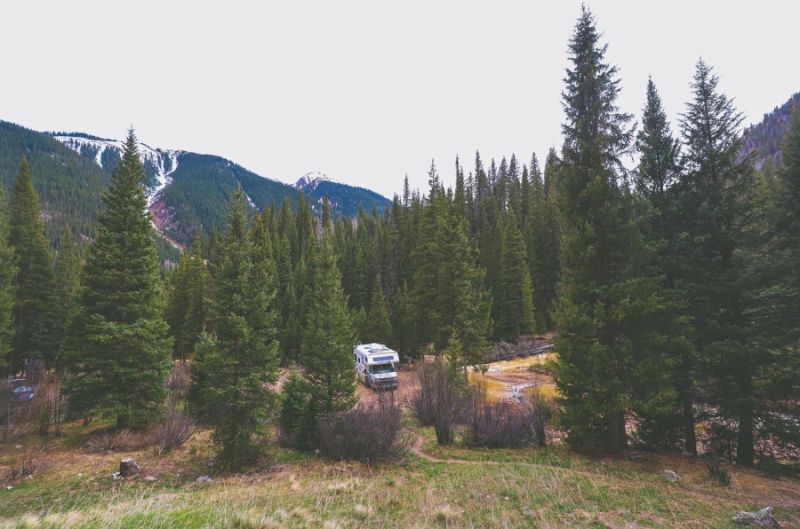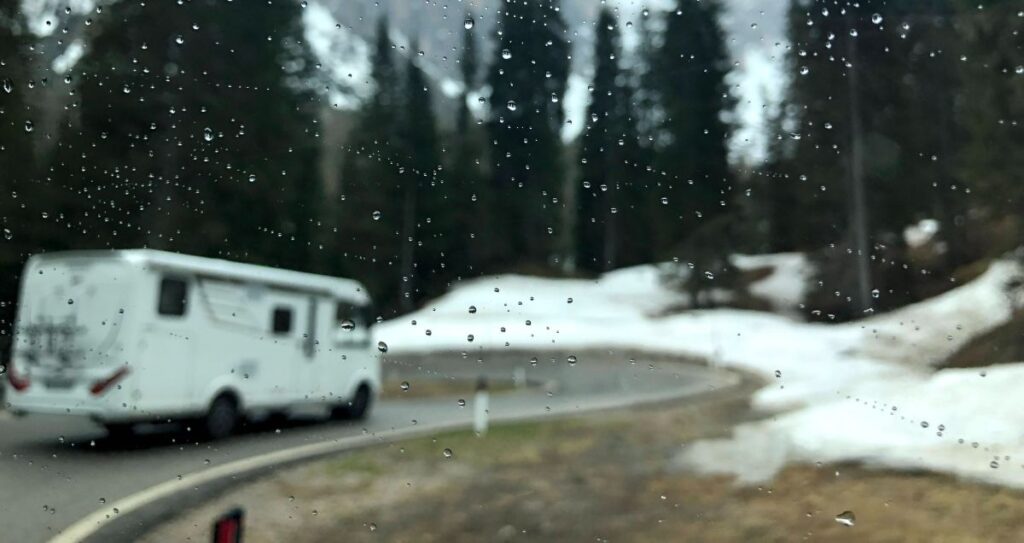Travelling in an RV is one of the most common dreams of nature lovers and adventurers.
By combining the comforts of a tiny home with the freedom of the open road, an RV is unmatched when it comes to facilitating short or long-term travel across vast territories with different climates and opportunities for different adventure activities. Having the space to store equipment for hiking or canoeing and a comfortable place to rest your head at night is a relief.
Despite the tremendous appeal, travelling in an RV can be challenging, with the weather holding the potential of becoming a major inconvenience. Heavy rain, storms and hurricanes pose a real risk to your vehicle. Here are a few top tips for facing extreme weather with minimal to no damage when travelling by RV.
#Keep Yourself Informed
One of the first essential tips for travelling successfully with an RV is to pay religious attention to weather forecasts. Recreational vehicles are not a safe shelter in bad weather conditions, so keep yourself informed about severe weather warnings.
The advantage of being in an RV is that you can leave the risky area quickly. This is the most recommended course of action. You should also get informed about extreme climates and avoid camping in locations that experience weather extremes.
#Have a Plan for the Worst-Case Scenario
Nature does not follow regular patterns, so despite all safety precautions, it’s still possible to get caught in a sudden storm or a blizzard while travelling by RV. To keep yourself and your vehicle safe and dry, you’ll have to prepare for this type of scenarios.
Have a checklist for steps to take for each type of problem that might occur. For example, what if your sump pump stops working during a power outage? How to secure your RV in case of flooding or strong winds? Where will you stop over in a secure RV park, in case you need to retire for the night given the condition and danger of the roads in harsh storms? You should have a good answer to these questions, and not only.
#Be Aware of Your Surroundings
Whether you’re camping in the wild or a dedicated campsite, such as Clearwater Cove RV Resort, always be aware of your surroundings. In the event of a storm, what elements in your surroundings could become safety hazards? For example, a large body of water nearby can overflow its banks and flood your RV. The low-hanging branches of a tree could fall on your roof if you park to close.

Keep an eye on all elements and objects that can pose a risk to your RV and always park in a safe and secure spot, even if the weather is pleasant. Things can change dramatically in a matter of hours.
#If You Can Get Somewhere Safe, Do That
We understand that it’s not always possible to get somewhere safe and sheltered when a sudden storm hits. However, if you are able to because you know you’re not far from either the RV park that you booked or potentially somewhere else you can take cover, you should try. Never, ever do this if you are unsure whether it’s safe or you’re too worried about the conditions outside.
There are circumstances though where you’re not in the worst of the storm yet, and you will be able to make it a little bit further before you have to stop driving altogether. Use your judgment to make this call as these grounds tend to be safer for you and your vehicle than out on the side of the road.
#Stock Up on Emergency Essentials
The worst thing about facing extreme weather is being left without power, with many of your RV facilities inoperable. This is when the emergency kit shows its value. Keep a good stock of flashlights, batteries and smartphone charging banks.
Without power, you won’t be able to stay connected to the outside world and seek help, so forgetting essential items can cause a lot of unnecessary stress. Don’t forget to include in your emergency kit other key items like first-aid, water, food and even paper maps.
#Be Extra Cautious When Driving in Severe Weather
Driving in bad weather conditions can be extremely dangerous, so you should be aware of key safety tips. If you have to drive, make sure to put all things in your RV away so there’s no risk of them falling, breaking and hitting you. Know which dangers you should look out for. For example, heavy downpours mean slippery roads and low visibility, so you should pull over when it becomes hard to see.
Avoid roadways that can get easily flooded because you can be swept away. Similarly, avoid driving in severe stormy weather since your vehicle can be turned over by strong winds. Once the RV starts shaking, continuing to drive is dangerous because it’s difficult to keep your vehicle in the lane. High winds and flash floods can make your vehicle uncontrollable.
In case of hail or tornado, seek shelter for your RV near a solid structure like a restaurant or a gas station. To drive away from a tornado, go in the opposite direction. Don’t try to outrun it and avoid highway overpasses.
The point of travelling in an RV is that you can immerse yourself in nature, but don’t let yourself at the mercy of nature’s unpredictable ways. Although you cannot control the environment, with proper planning you can always be a step ahead of each challenge. Always exercise caution.

